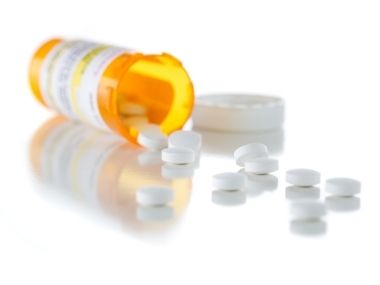
Specialty Pharmacy
Medication Safety
How To Use Medicines Safely
 Remember these tips to help you use your medicines safely:
Remember these tips to help you use your medicines safely:
- Know the name of your medicine.
- Ask questions to make sure you know how to use the medicine.
- Know what condition and/or symptom(s) your medicine treats.
- Read medicine labels and follow directions.
- Make sure everyone involved in your health care
knows about all your medicines and anything else
you take, like vitamins, herbs, and pills you get
without a prescription. - Always keep a list of all your medicines with you.
- Ask questions about what reactions you could have from your medicine.
Bad Reactions to Your Medicine
If your tongue or mouth begins to swell or if you are having trouble breathing, call 911 immediately. This could be a sign of a life-threatening reaction. For any symptoms or problems that put life in danger, call your provider, local emergency room, or 911. If you think you are having some other less serious side effect, you can call your provider or the program's call center to speak to a pharmacist.
Handling Drug Recalls
Drug recalls remove a product from stores. Recalls may happen when a drug company decides it’s needed, when the FDA asks for a recall, or when the FDA orders the recall by law. If a specialty medication you are taking is recalled, your UMMC pharmacist will call you and let you know what to do. If you hear that one of your medicines has been recalled, call us for instructions. We take care of recalls quickly to keep our patients safe. If you have any questions about recalled drugs or other purchases, call our program call center at (601) 815-9250.
Getting Rid of Unused Medicine
The best way to get rid of unused medicine is through a medication take-back program. The U.S. Drug Enforcement Administration (DEA) holds National Prescription Drug Take-Back events twice a year. On these days, they set up places in towns all over the United States where people can drop off their unused medicine.
Your police department or fire department may also have a medicine take-back program. You can also call your waste management company to ask what to do.
If your town doesn’t have a medication take-back program, read the label on your medicine to see if it has instructions on how to dispose of it. If it doesn’t, you can follow these simple steps to get rid of most medicines in the household trash. If you have leftover cancer medicine, ask if your doctor can throw it away for you. Cancer medicines should not be thrown into household trash.
- Take the medicine out of the bottle it came in.
- Mix the medicine with something that tastes bad, such as dirt, kitty litter or used coffee grounds, but don’t crush tablets or capsules.
- Place the mixture in a something that can be closed, such as a zipping plastic bag or disposable container with a lid.
- Throw the container in your household trash.
- Scratch out your name and all the other personal information on the label of the empty pill bottle, then throw it in the trash.
Never give your unused medicine to friends. Providers give you medicines based on your specific symptoms and medical history. What works for you could be dangerous for someone else.
When in doubt about proper disposal, ask your pharmacist.
How to Throw Away Needles, and Other Home-Generated Biomedical Waste
Any type of sharp object, like a needle, syringe, or lancet, you use at home to inject medicine or draw blood is called “home-generated biomedical waste.” You have to be very careful in throwing away these “sharps” to keep yourself and others from getting injured and to keep your home clean and safe. If you use needles, you will also get a sharps container for throwing away needles. Also find out from your local waste management company how they want you to throw away sharps containers.
If you do not have a sharps container, the U.S. Food and Drug Administration says you should:
- Use an empty household container made of heavy-duty plastic that you can’t see through. It should stand upright, and have a tight-fitting lid that a sharp object can’t put a hole in. Two good examples are a laundry detergent bottle and a bleach bottle.
- When the container is two-thirds full, put the lid on it and seal it with duct tape. Write “DO NOT RECYCLE” on the container and put it in your regular trash.
Stay safe when handling needles:
- Never replace the cap on needles.
- Have the sharps container nearby and ready to use before using a needle.
- Throw used needles away in a sharps container as soon as you finish.
Let your provider know right away if you hurt yourself with a needle stick or have another sharp injury.
If you don’t use needles or other sharps, you don’t need a sharps container. You should put all your used supplies
such as syringes or tubing inside a bag you can’t see through. Put this bag inside a second bag and throw it
away with your other trash. Get more ideas for getting rid of medicines from the FDA or the EPA. Go to the following websites:


